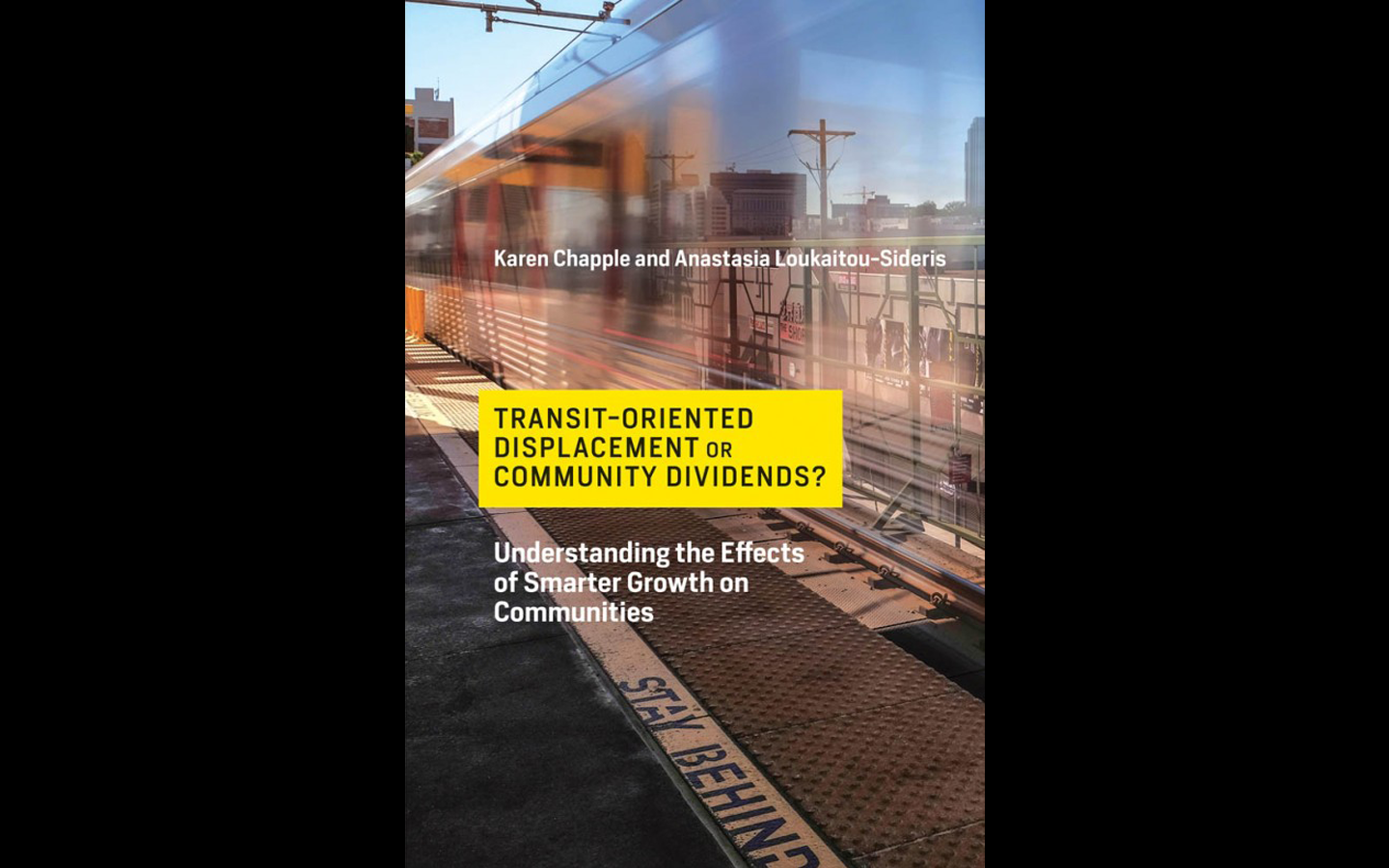Karen Chapple: Double Jeopardy: The Unintended Effects of Climate Change Mitigation

image / provided
Bio:
Karen Chapple, Ph.D., is inaugural Director of the School of Cities and Professor in the Department of Geography and Planning at the University of Toronto. Chapple studies inequalities in the planning, development, and governance of cities and regions in the U.S. and Latin America. Her most recent book is Transit-Oriented Displacement or Community Dividends? Understanding the Effects of Smarter Growth on Communities (with Anastasia Loukaitou-Sideris, MIT Press, 2019). Other books include Planning Sustainable Cities and Regions: Towards More Equitable Development (Routledge, 2015), which won the John Friedmann Book Award from the American Collegiate Schools of Planning; and Fragile Governance and Local Economic Development: Theory and Evidence from Peripheral Regions in Latin America (with Sergio Montero, Routledge, 2018). In Fall 2015, she cofounded the Urban Displacement Project, a research portal examining patterns of residential, commercial, and industrial displacement, as well as policy solutions. Chapple is a Professor Emerita of City and Regional Planning at the University of California, Berkeley, where she served as department chair and held the Carmel P. Friesen Chair in Urban Studies. She holds a B.A. in Urban Studies from Columbia University, an M.S.C.R.P. from the Pratt Institute, and a Ph.D. from UC Berkeley.
Abstract:
Local, state, and national governments are channeling significant funding into mitigating climate change in an effort to reduce greenhouse gas emissions. These investments – on urban greening, infill development, transit, and active transportation – may cause land values and housing costs to rise, thereby displacing low-income residents. Yet, researchers continue to disagree about the extent and nature of this displacement, due in part to a continued schism between quantitative and qualitative approaches as well as an inadequate conceptualization of the role of context. In this talk, I explore these methodological questions through the lens of a decade of research on the displacement impacts of California's climate change mitigation portfolio. Our mixed-methods approach reveals that climate change mitigation has unintended – but small – consequences in terms of household mobility. I conclude by proposing tools to empower local communities to keep residents in place.




